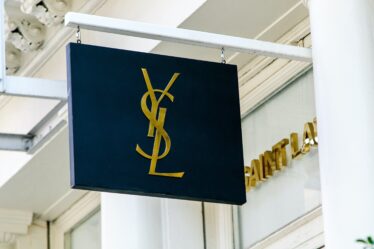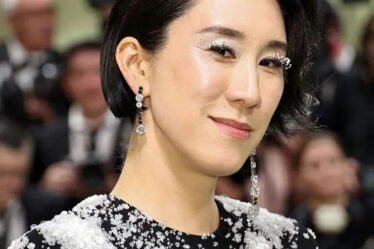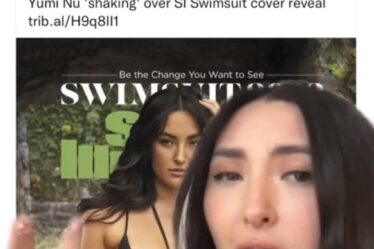The most exciting moment in sports this week belonged to women.
On Monday, an eagerly anticipated rematch took place between Iowa and Louisiana State University to see which team would advance to the final four of the women’s college basketball tournament. The game pitted two of the sport’s most bankable athletes against one another: Iowa star Caitlin Clark and LSU’s Angel Reese. Clark, who became the highest-scoring NCAA basketball player ever this year — across female and male leagues — led her team to the win in what was also the most-watched college basketball game — across women’s and men’s — on sports network ESPN.
Viewership of women’s sports has steadily grown into a year-round affair, not strictly tied to blockbuster events like the Olympics or the World Cup, and with all those eyes have come more commercial opportunities. Deloitte forecasts that revenue from women’s elite sports will top $1 billion for the first time this year, including income such as sponsorship deals and merchandise sales.
For fashion and beauty, whose biggest customers are women, it should be a golden opportunity. Since 2021, when the NCAA cleared the way for collegiate players to profit off their name, image and likeness, or NIL, stars such as Clark and Reese have taken advantage, signing endorsement contracts with brands of all sorts. Reese even chose Vogue for this week’s announcement that she will enter the WNBA draft.
But while these industries have started to recognise the huge marketing channel sport offers, they’ve remained mostly focused on male athletes. The usual excuses for brands overlooking women’s sports have tended to be that the audience is smaller, that its players are less exciting and therefore less marketable and that it remains a risky bet. And there remain unspoken undercurrents of sexism and racism involved.
Those arguments are less credible by the minute. Clark became the highest-selling athlete in the NIL era on Fanatics, which makes sports merchandise, after breaking the scoring record, and data from Google found Reese and University of Connecticut guard Paige Bueckers were the top trending athletes in the world after Monday’s games.
“I hate to say it, but the women players are kicking the men’s butts,” NBA legend Shaquille O’Neal told People magazine last month.
O’Neal isn’t totally impartial. He was recently named president of basketball at Reebok, where the first deal he signed was with Reese.
Sneaker brands, in fact, are one group seizing the moment. This NCAA tournament season, 15 women’s college basketball players had shoe deals, according to sports and entertainment outlet Boardroom. (Nike, which sponsors Clark, has unveiled several giant billboards featuring the hoops star.) By contrast, only three male players had deals.
Some others have also recognised the potential of players like Reese, such as Mielle Organics, which tapped her well before she led LSU to its first national championship in 2023. But most have taken a more measured approach, signing athletes timed to a particular hot seasonal moment like the Super Bowl or Olympics. The latter was L’Oréal Paris’ move when it signed Australian football star Mary Fowler as regional brand ambassador in advance of the summer games. More of these deals are expected to flow in the coming months.
Still, Casey Murphy, goalkeeper for National Women’s Soccer League team North Carolina Courage and the US Women’s National Team, said it was more difficult for herself and her peers to capitalise on their sports success in the beauty and fashion worlds.
“From a personal standpoint, it’s been harder to break into those companies and businesses and explain what I do,” she said. “Female athletes want to express their femininity in whatever shape or form that is.”
Beauty labels are typically more brazen in their marketing. Look at E.l.f., which spurred the recent onslaught of beauty brands advertising during the Super Bowl after debuting its spot with “White Lotus” actress Jennifer Coolidge during the big game last year. In March, the brand announced it became the first beauty partner of the Professional Women’s Hockey League.
Being a first mover has huge upside. Finding the next Clark or Reese is likely to be far more impactful for established and emerging brands alike versus signing the same recognisable faces over and over again – ahem, Sophie Richie Grange or Sydney Sweeney. Imagine discovering and following Naomi Osaka just as she was turning professional in 2013 versus joining the pile-on of brands knocking on her door after she won the US Open five years later.
Beyond beauty and fashion brands merely wanting to invest in female athletes due to synergies with their customer base, there is fairly low risk right now. Despite Clark being attached to monster brands with Nike, State Farm, Buick and more, her NIL deals are estimated to only be $3.2 million, according to college sports media outlet On3.
It’s also just good business. Besides capitalising on the growth of women’s sports and the revenue that will come with it, there is a greater audience play beyond Gen-Z or Gen Alpha. “The beauty and fashion industries need to encourage not only the younger generation, but women of all ages to feel confident and secure about being physically strong,” said Murphy. “We still don’t talk about that enough.”
But brands can’t expect an immediate payoff either, any investment a smart label makes in a talented athlete — female or male — has to be given time. Remember, champions aren’t born, they’re made.
THE NEWS IN BRIEF
FASHION, BUSINESS AND THE ECONOMY

Shein doubles profits as it awaits IPO approval. The company recorded sales of about $45 billion last year. It has more than doubled its profits to more than $2 billion.
Aditya Birla Fashion to list flagship lifestyle brands Madura Fashion & Lifestyle as separate entity. The move follows the company posting losses for the last three quarters due to weak demand as well as increased investments in some brands. Madura Fashion consists of four lifestyle brands — Louis Phillippe, Van Heusen, Allen Solly and Peter England — and contributes to more than 70 percent of the company’s total revenue.
Calvin Klein owner PVH tumbles 20 percent on warning of Europe weakness. The clothier said it expects revenue this year to decrease 6 percent to 7 percent, compared with a 2 percent increase last year. In the fourth quarter, which includes the crucial holiday season, profitability exceeded the average analyst estimate.
Marathon Partners pushes Dr. Martens for strategic review and possible sale. The New York-based firm argues Dr. Martens’ stalled earnings growth and sharp share price drop of 83 percent since its public listing in 2021 have decoupled its valuation from its intrinsic value. The investment firm owns roughly 5 million shares, making it one of the 30 largest investors in Dr. Martens.
Former Gucci CEO sets up investment company. Bizzarri’s new company Nessifashion aims to invest in and offer strategic advice to fashion companies. He is the sole administrator of Nessifashion and holds it through his Nessi SRL, a holding company which already owns stakes in real estate companies and restaurants.
Retailer Express holds talks for bankruptcy financing. Express, which sells mid-priced apparel, has been burning through cash as it attempts to fix its troubled operations.The company may file for bankruptcy as soon as next week, but the preparations aren’t final and plans could change.
Fashion Trust Arabia to hold next awards event in Morocco. Last year’s edition — originally slated for October in Doha, Qatar — was awarded virtually amid geopolitical tensions and safety concerns in the Middle East. The ceremony will be held in Marrakech, Morocco in October.
Levi Strauss lifts profit forecast on cost savings and less discounts. The company’s shares were up 7 percent. Levi’s also reported a loss of $10.6 million, or 3 cents per share, in the first quarter, compared with a profit of $114.7 million, or 29 cents, a year earlier.
Kering splashes out €1.3 billion for building on Milan’s iconic shopping street. The French luxury group said it’s buying Via Monte Napoleone 8 from a unit of Blackstone Property Partners Europe. The 18th-century property covers five floors and boasts more than 5,000 square metres of retail space, making it one of the largest on the famed street, according to Kering.
The Independents makes its second acquisition in 2024. The fashion communications company is buying The Sunshine Company, a consultancy and creative agency based in London and Los Angeles. CEO Isabelle Chouvet said that the acquisition comes at a time when more brands are looking to experiment more with bringing their brands to life through entertainment.
THE BUSINESS OF BEAUTY

Ulta routs in beauty stocks on warning of slowing demand. The retailer’s stock plunged as much as 15 percent, the most since March 2020. Shares of firms whose goods Ulta sells also tumbled. Estee Lauder Cos. and Coty Inc. sank the most since the start of the year, while Elf Beauty Inc. slumped the most since October.
L’Oréal eyes stake in €3 billion perfume brand. The French beauty group has been holding talks on the possible purchase of a minority stake in Omani luxury fragrance company Amouage. Amouage’s owner, the SABCO Group conglomerate, has discussed a valuation of more than €3 billion ($3.2 billion) for the business in any deal, according to the people familiar with the matter.
Costco is offering members access to weight-loss programmes including medication. The wholesale retailer’s members can subscribe to online healthcare services provider Sesame’s weight-loss programme for $179 for three months, compared with $195 for non-members. The subscription does not cover costs of medication or lab work.
Serena Williams launches makeup line. Her brand Wyn Beauty will be making its debut via Ulta Beauty on April 7 in 685 physical stores and online. The initial lineup, including a collection of 10 lip, complexion and eye products, will also be available on the brand’s DTC site.
Rita Ora launches hair care line. The singer and actress is launching her own hair care line, Typebea — pronounced “Type B” — on April 18. The brand’s serum, glossing treatment, shampoo and conditioner are geared towards repairing and growing damaged hair.
L’Occitane sells Grown Alchemist stake to outgoing CEO. The transaction will make outgoing CEO André Hoffmann the majority owner and buy L’Occitane out of its equity position. Current CEO Anna Teal will hold a minority stake and remain in her role at the newly private company.
Compiled by Yola Mzizi.



